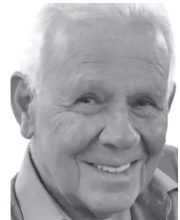By Jason Johnston
We know that the suffering and death of Covid-19 has been far more severe in our local communities of color, particularly the Latinx communities in South County. And we would like to believe that we live in a community with progressive values, among them a belief in health equity and against systemic racism. So it may be jarring to learn that we have chosen to cut our county health services to these communities of color at the hour of their greatest need. There is still time for us to prevent unnecessary deaths from Covid-19 and stand up for health equity, but only if we change course.
The rate of Covid-19 cases among our county’s Hispanic residents is five times the rate among White residents. This is likely a significant undercount, as testing facilities have been overwhelmed in South County for some time. At the Watsonville clinic where I work, we have had a 30-50% positivity rate for more than a month, and turn away significant numbers of patients seeking testing due to lack of staff. Hispanic members of our community are more likely to be essential workers and to live in a crowded home, and so face a dramatically disproportionate risk of disease and death from Covid-19.
Our county has done an admirable job distributing federal funds to local nonprofits. Our public health leaders, placed under tremendous pressure, deserve all of our deep gratitude for their hard work. However, our use of local resources tells another story.
Monterey County recently allocated $5 million in county, not state or federal, funds for 100 health educators for the critical work of supporting the highest risk communities in isolation and quarantine, accessing testing and, soon, vaccination. This was based on a model from Fresno County, and achieved by a broad collaboration between community groups, local foundations and employers.
In contrast, Santa Cruz County decided this summer to furlough the county clinics that serve the highest risk members of our community, in addition to furloughing the Public Health Department. The 7.5% reduction in staffing was done to save money on salaries for health workers, amounting to millions of dollars in cuts in services to those most in need of help.
We have a fire raging in South County right now, and we are sending the firefighters home. Imagine the outrage if firefighters were furloughed during the CZU fire. Different communities are suffering, and the different response is striking. Due to furloughs, much of the Public Health Department was closed for one week recently, at the height of our surge in cases and great need to prepare mass vaccination.
The county clinic in Watsonville has generated a profit for county taxpayers for many years, including 2020. While staff work hard to provide excellent health care, due to furloughs they have struggled to provide access to care and testing, and will likely soon struggle to provide timely vaccination to our thousands of high-risk patients. If similar decisions were made on a federal level, I would expect local condemnation. They are being made by our local community leaders, and the silence is deafening.
If our community instead decides to act for health equity—standing up to systemic racism during Covid-19 and protecting the most vulnerable among us, then like our neighboring counties have shown, there is much we could accomplish.
One pressing need is a local ordinance requiring employers provide sick pay for employees under medical order to isolate or quarantine. The federal requirement has recently expired, and many local employers have rushed to end their sick pay programs. Many cities and counties across the nation have enacted these rules.
Sick pay is not just an economic issue—it is a vital public health tool to control the spread of Covid-19 in our region. Without it, essential workers must choose between rent and protecting their coworkers, and the Hispanic community will pay the highest price.
Our county is home to an estimated 15,000 farmworkers. While doing critical work we all depend on, they have suffered very high levels of disease. How many? We don’t know. At the request of employers it was decided recently to stop publicly reporting the number of local farmworkers with Covid-19. We are in dire need of resources such as more staff to vaccinate this community, even while their illness is being swept under the rug.
Every day my coworkers and I work hard to make the county clinics reflect our community values. But we can’t do it alone. Access to good health care for all, standing up to systemic racism and for health equity in our community—we need our community’s help now to defend these values in Santa Cruz County.
Jason Johnston is a local physician assistant and SEIU 521 member. His views are his own and not necessarily those of the Pajaronian.










